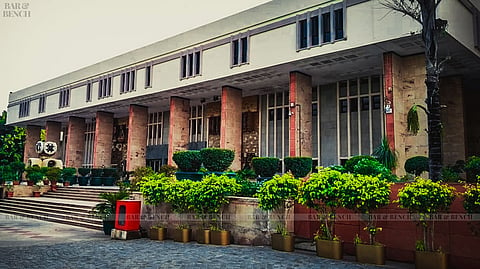
- Latest Legal News
- News
- Dealstreet
- Viewpoint
- Columns
- Interviews
- Law School
- Legal Jobs
- हिंदी
- ಕನ್ನಡ

The Delhi High Court recently set aside Delhi Developmental Authority (DDA) and Delhi Urban Shelter Improvement Board (DUSIB)'s refusal to rehabilitate the displaced Jhuggie jhopadi residents removed from the DBS Camp area in Jangpura in 2006 [Ziaul Haque & Ors vs. Delhi Development Authority & Anr].